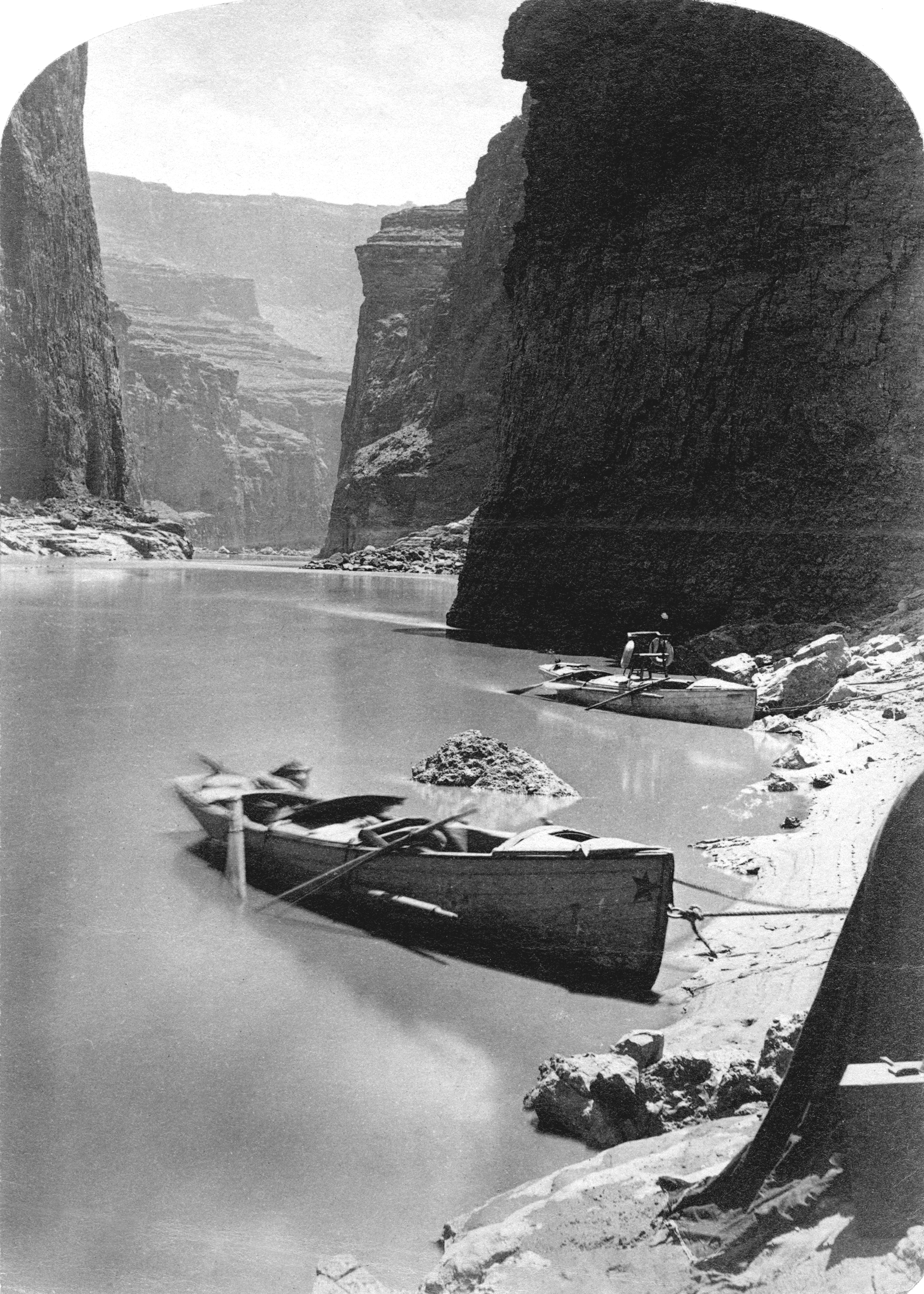"...sounds that span the diapason from tempest to tinkling raindrop, from cataract to bubbling fountain."— John Wesley PowellIn his poetic description of sounds, Powell used the word diapason, a musical term denoting the interval of an octave.
The Powell Geographic Expedition of 1869 chronicled the first recorded passage through the the Grand Canyon by men of European origin.
 |
| The Boats in Marble Canyon John Wesley Powell's 2nd expedition, 1872 |
Diapason is a word also used in the metaphoric sense of a grand swelling of harmony.
Harmony with nature is a popular human construct. The General Assembly of the United Nations established International Mother Earth Day in 2009 to recognize "the Earth and its ecosystems are our home." The General Assembly resolved that "it is necessary to promote harmony with nature and the Earth."
Promoting harmony is a compelling, but idealized fiction. Organisms, and in particular humans, follow few if any altruistic rules. Organisms exist within dynamic constraints like predation pressure and food supply.
The biosphere is made up of dynamic and inter-dependent constraints. Constraints in the biosphere are more complex but not unlike the consumer economics concept of supply and demand. As early as the first agricultural revolution, humans have sought to defy constraints from an unpredictable food supply to the force of gravity.
Since the transition from mobile scavenging communities of hunter gatherers to the more predictable and geographically stationary communities of crop cultivation around 10,000 BC, humans have been shedding constraints and burning up resources with little recognition of the consequences.
To humans, the available resources to exploit seemed limited by ingenuity, rather than by the recognition of finite supply. Animals often act against their interests when constraints diminish. When predation pressure from foxes diminishes, herbivores like rabbits might spike in population, then overgraze a finite range of plants.
Dispassionate examination of ecological dynamics is more instructive and essential to our viability than the romantic allure of proposing to live in harmony with nature. Our existential plight depends on our recognition of the consequences of pursuing our desires with few constraints beyond the degradation of the biosphere and the hard stop of finite resources.
_-_Google_Art_Project.jpg) |
| The Derelict (The Lost Boat) by Arthur Wesley Dow |
The challenge of our time is recognizing the grand swelling of harmony in each moment with the full range of our senses, while simultaneously recognizing the compass of consequences of self-serving behavior.
REFERENCES
- Diapason, Wikipedia.
- Why is the human race unable to live in harmony with nature and itself, like animals?, Steven McQuinn, Quora.com, 17 April 2015.

